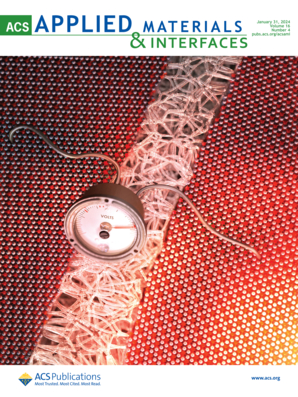Transcriptomics Analysis Identifies the Decline in the AT2 Stem Cell Niches in Aged Human Lungs.
IF 8.2
2区 材料科学
Q1 MATERIALS SCIENCE, MULTIDISCIPLINARY
引用次数: 0
Abstract
Aging poses a global public health challenge, which is linked to the rise of age-related lung diseases. The precise understanding of the molecular and genetic changes in the aging lung that elevate the risk of acute and chronic lung diseases remains incomplete. Alveolar type II (AT2) cells are stem cells that maintain epithelial homeostasis and repair the lung after injury. AT2 progenitor function decreases with aging. The maintenance of AT2 function requires niche support from other cell types, but little has been done to characterize alveolar alterations with aging in the AT2 niche. To systematically profile the genetic changes associated with age, we present a single-cell transcriptional atlas comprising nearly half a million cells from the healthy lungs of human subjects spanning various ages, sexes, and smoking statuses. Most annotated cell lineages in aged lungs exhibit dysregulated genetic programs. Specifically, the aged alveolar epithelial (AT2) cells demonstrate loss of epithelial identities, heightened inflammaging characterized by increased expression of AP-1 transcription factor and chemokine genes, and significantly increased cellular senescence. Furthermore, the aged mesenchymal cells display a remarkable decrease in Collagen and Elastin transcription and a loss of support to epithelial cell stemness. The decline of the AT2 niche is further exacerbated by a dysregulated genetic program in macrophages and dysregulated communications between AT2 and macrophages in aged human lungs. These findings highlight the dysregulations observed in both AT2 stem cells and their supportive niche cells, potentially contributing to the increased susceptibility of aged populations to lung diseases.转录组学分析确定了衰老人体肺部 AT2 干细胞位点的衰退。
老龄化是一项全球性的公共卫生挑战,它与老年性肺部疾病的增加有关。人们对衰老肺部的分子和遗传变化的确切了解仍不全面,而这些变化会增加罹患急性和慢性肺部疾病的风险。肺泡 II 型(AT2)细胞是维持上皮细胞平衡和损伤后修复肺部的干细胞。AT2祖细胞的功能会随着衰老而降低。AT2功能的维持需要来自其他细胞类型的生态位支持,但目前还很少有人对肺泡随着AT2生态位衰老而发生的变化进行描述。为了系统分析与年龄相关的基因变化,我们展示了一个单细胞转录图谱,其中包括来自不同年龄、性别和吸烟状况的人类健康肺部的近 50 万个细胞。在衰老的肺中,大多数被注释的细胞系都表现出基因程序失调。具体来说,衰老的肺泡上皮(AT2)细胞表现出上皮特性丧失、炎症反应加剧(AP-1转录因子和趋化因子基因表达增加)以及细胞衰老明显加剧。此外,衰老的间充质细胞显示胶原蛋白和弹性蛋白转录显著减少,并失去了对上皮细胞干性的支持。巨噬细胞的基因程序失调以及老年肺中 AT2 与巨噬细胞之间的通信失调进一步加剧了 AT2 龛的衰退。这些发现突显了在AT2干细胞及其支持性生态位细胞中观察到的失调,这可能是导致老年人群更易患肺部疾病的原因。
本文章由计算机程序翻译,如有差异,请以英文原文为准。
求助全文
约1分钟内获得全文
求助全文
来源期刊

ACS Applied Materials & Interfaces
工程技术-材料科学:综合
CiteScore
16.00
自引率
6.30%
发文量
4978
审稿时长
1.8 months
期刊介绍:
ACS Applied Materials & Interfaces is a leading interdisciplinary journal that brings together chemists, engineers, physicists, and biologists to explore the development and utilization of newly-discovered materials and interfacial processes for specific applications. Our journal has experienced remarkable growth since its establishment in 2009, both in terms of the number of articles published and the impact of the research showcased. We are proud to foster a truly global community, with the majority of published articles originating from outside the United States, reflecting the rapid growth of applied research worldwide.
 求助内容:
求助内容: 应助结果提醒方式:
应助结果提醒方式:


